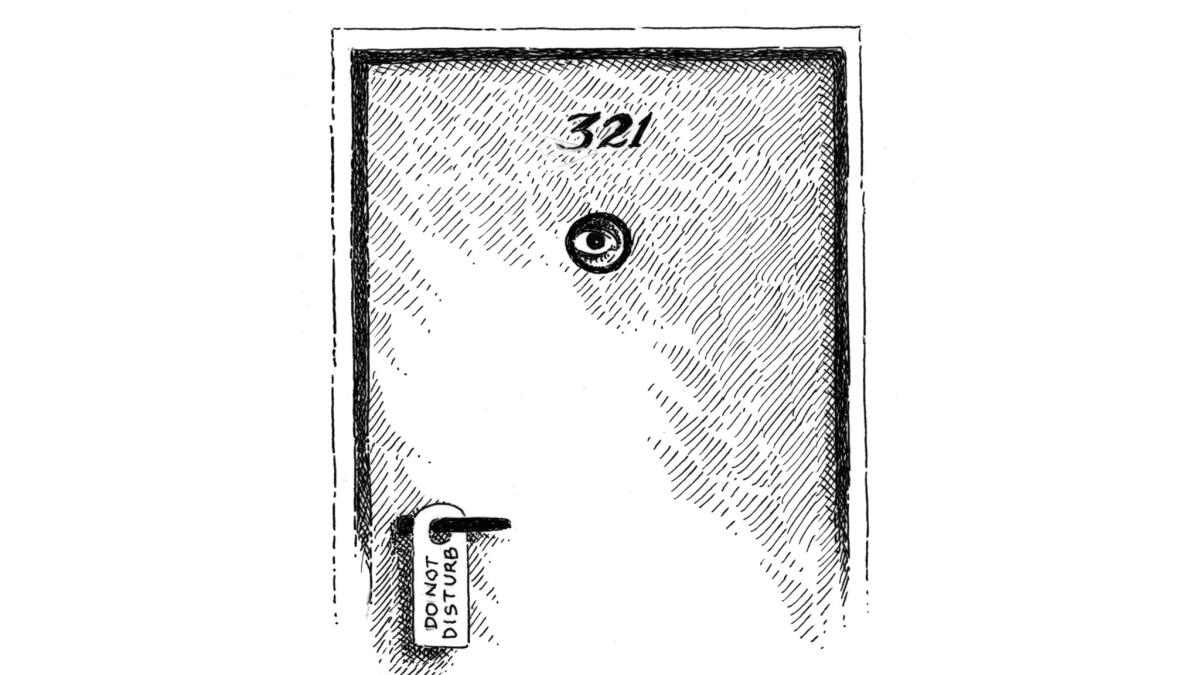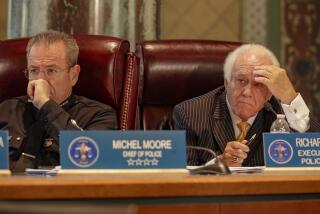Editorial: Who’s staying in that hotel?

- Share via
This week the U.S. Supreme Court agreed to rule on the constitutionality of an L.A. city ordinance that gives police easy access to hotel records and punishes hotel managers who don’t hand them over with fines or jail time. The justices should agree with a lower court that the ordinance violates the 4th Amendment — ideally in a ruling that affirms the privacy rights not only of hotels but of the guests who share personal information with them.
In striking down the ordinance, the U.S. 9th Circuit Court of Appeals focused on the rights of hotel owners. Judge Paul Watford said that police inspection of registration records was both a “physical intrusion” on the hotel’s private property and “an invasion of the hotel’s protected privacy interest in those papers.” He concluded that hotel operators could be punished for refusing to turn over registration records only if a judge found that a police demand was reasonable.
This rationale makes sense as far as it goes, but it ignores the privacy interests of hotel guests. That’s because Watford was bound by Supreme Court precedents holding that an individual has no reasonable expectation of privacy in information he voluntarily turns over to a third party (such as the telephone company, which amasses potentially revealing information about subscribers’ calling habits).
But the “third party” doctrine no longer makes sense, if it ever did. In a 2012 opinion that reflected only her views, Justice Sonia Sotomayor wrote that it “is ill-suited to the digital age, in which people reveal a great deal of information about themselves to third parties in the course of carrying out mundane tasks.” One of those mundane tasks is registering at a hotel where computers have replaced ledger books and guests must provide a credit card.
City officials insist that easy access to hotel registers enables the police to investigate prostitution and gambling and may also assist in tracking down fugitives and terrorists. But the same could be said of other end runs around the 4th Amendment. A fishing expedition in a hotel register is no more justified than a random search of people’s homes or their cars. If police have a good reason for such a search, they should have to tell it to a judge and obtain a warrant.
Follow the Opinion section on Twitter @latimesopinion
More to Read
A cure for the common opinion
Get thought-provoking perspectives with our weekly newsletter.
You may occasionally receive promotional content from the Los Angeles Times.










